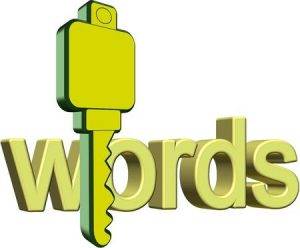 gnicolson
gnicolson
Words are important. If you want to care for something, you call it a "flower"; if you want to kill something, you call it a "weed." --Don Coyhis
Whether alcohol- and other drug (AOD)-related problems are viewed through the lens of medicine (illnesses), psychology (habits), sociology (norms), morality (vices), religion (sins), or law (crimes) rests on a choice of concepts and words. In 2011, John Kelly and I published a commentary in Alcoholism Treatment Quarterly on the continued use of "abuse/abuser" language within the alcohol and other drug problems arena. The commentary included five arguments against the continued use of such language.
1. The term abuse applied to substance use disorders is technically inaccurate. Common definitions of the term abuse focus on acts of willful mistreatment, verbal intimidation/insult/humiliation, or physical injury. To suggest that people with serious AOD problems disregard, mistreat, or defile the psychoactive substances they consume is a ridiculous notion. They treat these substances with the greatest devotion and respect often at the expense of themselves and everyone and everything else of value in their lives.
2. The terms alcohol/drug/substance abuse/abuser reflect the misapplication of a morality-based language to depict a medical condition. References to alcohol/drug/substance abuse are rooted in centuries of religious and moral censure. The abuse/abuser vocabulary has long implied the willful commission of abhorrent (wrong and sinful) acts involving forbidden pleasure, e.g., the historical condemnation of masturbation as self-abuse. The terms have also come to characterize those of violent and contemptible character--those who abuse their partners, their children, or animals. There is no other medical condition, other than addiction, to which the term abuse is applied.
3. The terms abuse/abuser contribute to the social and professional stigma attached to substance use disorders and may inhibit help-seeking. To refer to addicted individuals as alcohol, drug, or substance abusers misstates the nature of their condition and may contribute to their social rejection, sequestration, and punishment. Recent scientific studies by Dr. John Kelly and colleagues confirm that the words we use to depict individuals with AOD problems do make a difference in how people perceive and respond to these problems. These studies also confirm that the application of the "abuser" language contributes to more punitive and blaming attitudes toward those experiencing AOD problems.
4. The terms abuse/abuser inaccurately portray the role of personal volition in substance use disorders. These terms define AOD problems exclusively in terms of personal values, character, and personal decision-making. Use of these terms ignores how volitional control over AOD-related decision-making can be compromised by personal vulnerabilities and drug-induced neurological changes in the brain and it ignores the culpability of corporations whose financial interests are served by promoting excessive AOD use.
5. The DSM-IV abuse diagnosis perpetuates and legitimizes the continued stigmatization of people with AOD problems. This in tandem with concerns about the scientific validity of alcohol/substance abuse as a diagnostic classification contributed to the decision by the American Psychiatric Association to eliminate the abuse language within DSM-V.
Why in 2014 do the world's leading addiction research institutions (National Institute on Drug Abuse and National Institute on Alcohol Abuse and Alcoholism) and the leading U.S. governmental agency overseeing addiction treatment (Center for Substance Abuse Treatment) continue in their very names to embrace this moralistic and anachronistic language? And why do leading scientific journals in our field (Journal of Substance Abuse Treatment, Substance Abuse, etc.) continue to do the same? It is time--no, past time, that such language was abandoned.